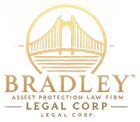Understanding Wyoming Trusts and Asset Protection
In the world of financial security, safeguarding your wealth is crucial. For high-net-worth individuals, Wyoming trusts—particularly asset protection trusts (APTs)—have become popular solutions to shield assets from creditors, lawsuits, and unexpected financial threats. In this comprehensive guide, we will explain the ins and outs of Wyoming Asset Protection Trusts, as well as why offshore trusts—particularly Cook Islands trusts—and bridge trusts might be your best options for securing your hard-earned wealth. Think of this guide as constructing a fortress, where each type of trust forms a layer of protection around your financial estate.
What is an Asset Protection Trust?
An asset protection trust is a legal tool that allows individuals to protect their assets from creditors and legal claims. It involves four main parties: the grantor (who creates the trust), the trustee (who manages the trust), the trust protector (looking over the trust), and the beneficiaries (who benefit from the trust assets). Transferring assets into a trust minimizes the risk of those assets being claimed by creditors.
Understanding Wyoming Asset Protection Trusts
Wyoming Asset Protection Trusts represent the first layer of your fortress. They offer a basic level of protection, but there are important limits to consider:
1. What It Is: A Wyoming APT, classified as a “qualified spendthrift trust,” lets you place your assets in a trust, relinquishing ownership and shielding them from potential creditors.
2. Key Benefits (Basic Level of Protection):
– Effective Domestic Shielding: Wyoming’s asset protection laws provide a more robust framework compared to many other states.
– Control Over Investments: Grantors can act as investment advisors, retaining some level of control over trust assets.
– Cost-Effective Setup: Establishing a Wyoming APT is typically more affordable than an offshore trust, making it accessible for those concerned about cost.
3. Significant Disadvantages (Vulnerable Areas):
– Limited Protection: Assets can still be vulnerable to child support claims, loans used as collateral, and fraudulent conveyance allegations.
– Legal Challenges: Cases such as Carpenters Union Local 445 v. McRae (2016) exemplify how U.S. courts can and do pierce domestic trusts by proving intent to defraud creditors. Similarly, In re Kanda (2010) ruled against Wyoming APTs for assets transferred shortly before creditor claims.
– Not every state recognizes Wyoming APTs. For example, California does not recognize any out-of-state asset protection trusts, and do not have any APT statutes.
LINK TO CASE DOCKET: https://www.leagle.com/decision/In%20CACO%2020121126043
Click this Link for a case summary on Kilker vs. Stillman (2012) https://btblegal.com/blog-articles/f/case-study-kilker-vs-stillman
While Wyoming APTs provide a foundational layer of asset protection, they may not stand strong against serious threats.
The Power of Offshore Trusts: Building a Stronger Fortress
Now, let’s explore the next layer—offshore trusts. Specifically, the famous Cook Islands trust offers significantly enhanced protection compared to domestic trusts. Think of these trusts as adding reinforced walls to your fortress.
Why Choose a Cook Islands Trust? (Strengthened Layer of Protection)
– Superior Asset Protection: Cook Islands trusts are designed to resist U.S. creditors, making it extremely difficult for them to access your assets. Due to Statutory Non Recognition of any other countries court order or judgments, the Cook Islands is the gold standard for APTs.
– Plaintiffs suing you must prove their case beyond a reasonable doubt. This is the murder standard. The 99% sure standard.
– Plaintiffs must put up a bond and front the court costs, plus fly in a judge from New Zealand.
– If they lose the lawsuit they must pay not just their legal fees, but your legal fees also. So they will end up having to pay to play, and pay to lose.
– Statute of Limitations: Generally, creditors have only one year to file claims against assets transferred into a Cook Islands trust, providing invaluable time for asset protection.
By incorporating an offshore trust into your asset protection strategy, you create a formidable layer of security against both domestic and international threats.
The Bridge Trust: The Best of Both Worlds
For individuals seeking the most optimal solution, the Bridge Trust offers the best balance of protection and accessibility, serving as the gate that connects your domestic trust to the offshore system.
Why the Bridge Trust is Optimal (The Strongest Layer of Protection)
– Hybrid Structure: Combining elements of both domestic and offshore trusts, the Bridge Trust provides robust asset protection while allowing the grantor to maintain access to funds.
– Flexibility: It permits the grantor to retain control over the trust’s investments while benefiting from enhanced asset protection.
– Cost-Effective Management: Setting up and maintaining a Bridge Trust is less expensive than a fully foreign offshore trust, yet it provides the same protective benefits.
– Easy Accessibility: Unlike some offshore trusts, Bridge Trusts are more user-friendly, making it easier for individuals to manage their investments without compromising security.
The Bridge Trust acts as a well-fortified gate that enhances your overall asset protection strategy.
Conclusion: Protect Your Wealth Effectively
Safeguarding your assets in today’s complex financial landscape requires careful planning and strategy. While Wyoming Trusts have their place in the world of asset protection, their limitations—especially concerning legal defensibility—highlight the importance of exploring more robust alternatives.
The Cook Islands Trust provides unparalleled protection from creditors and legal claims, acting as a powerful reinforcement for your assets. However, its cost, and mandatory IRS disclosures are often a barrier of entry for most. Meanwhile, the Bridge Trust seamlessly merges ease of management with solid asset protection features, at a more reasonable cost, with no IRS disclosures, forming the critical gate to your financial fortress.
Investing in a strong asset protection strategy is vital for securing your financial future. Consulting with a qualified asset protection attorney who specializes in asset protection law can help you determine the best structure tailored to your unique needs, empowering you to build a multi-layered fortress around your wealth.
Reach out for a legal consultation with an asset protection lawyer at (888) 773-9399.
By: Brian T. Bradley




